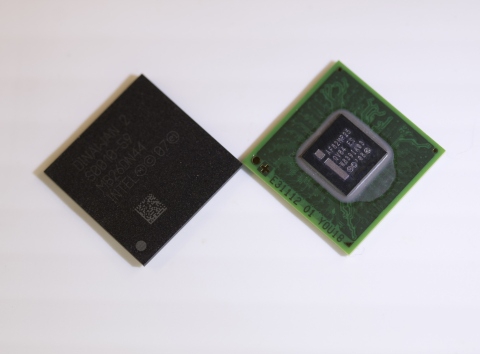 Enter Stage Right: Intel's Moorestown
Enter Stage Right: Intel's Moorestown
"Collectively these new chips deliver significantly lower power including >50x reduction in idle power, >20x reduction in audio power, and 2-3x reductions across browsing and video scenarios - all at the platform level when compared to Intel's previous-generation product. These power savings translate into >10 days of standby, up to 2 days of audio playback and 4-5 hours of browsing and video battery life3. When combined with 1.5-3x higher compute performance, 2-4x richer graphics, >4x higher JavaScript performance, and support for full HD 1080p high-profile video decoding and 720p HD video recording, these low-power innovations bring a rich, PC-like visual experience to powerful handheld computers." 
I have been waiting for this for years, even before Intel decided to push into the low-power processor space. What Moorestown brings to the table is the ability to run x86 applications, while still offering decent phone-like battery life for mobile devices. Note that at this stage Intel isn't claiming compatibility with Microsoft Windows of any flavour, prefering to focus on Android, Meego and Moblin. That's understandable as Windows isn't yet optimised for the much smaller screens of smartphones/MIDs and we still have the yet-to-be-overcome problem of switching from a mouse/keyboard control pardigm to one that focuses on touch. Having said that, just the idea of being able to bring all my apps and data around with me on a very mobile platform without restriction or having to deal with file conversions, has me shivering with anticipation. Despite what Apple says, some application types have yet to make the transition to smartphones ("no, there isn't an app for that"), which is where the appeal for Moorestown lies.
__________________
"A planner is a gentle man, with neither sword nor pistol.
He walks along most daintily, because his balls are crystal."
|









 Linear Mode
Linear Mode

